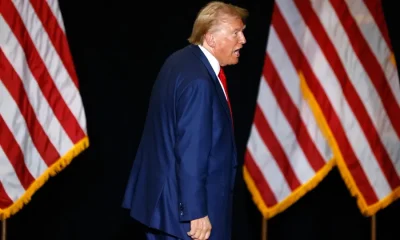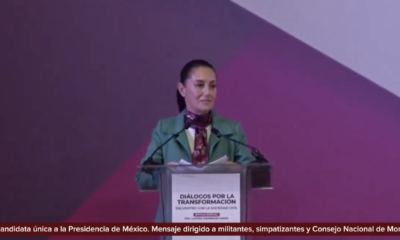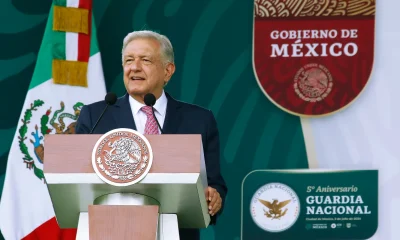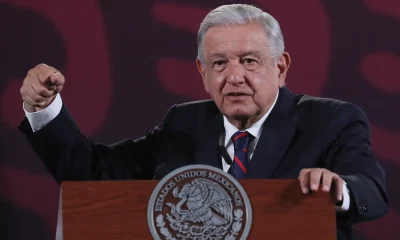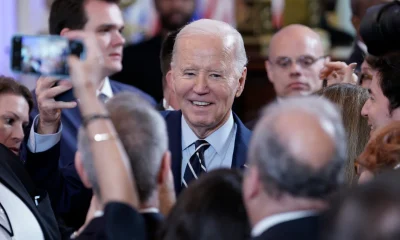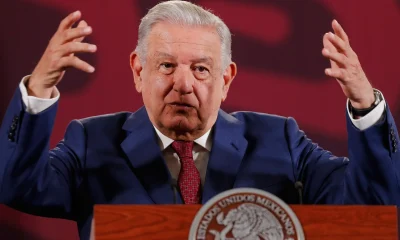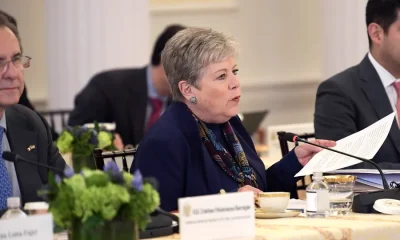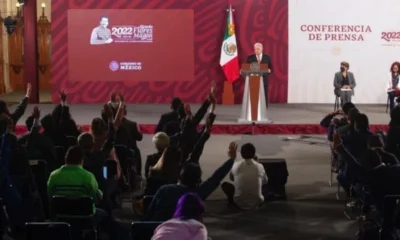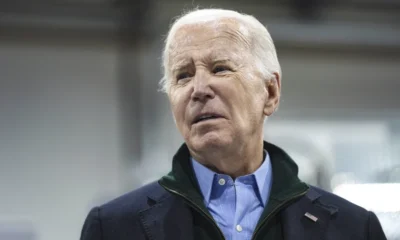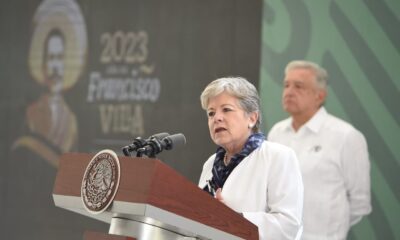International
Collectives predict that Mexico will not regulate cannabis until the US does so at the federal level

Different pro-cannabis groups predicted that Mexico will not regulate its consumption or production until the United States does so at the federal level, during the presentation of the Cannabis Encounter that will take place in the Mexican capital on April 27 and 28.
“As long as there is no federal regulation in the United States, we believe that federal regulation will not be allowed in Mexico,” said Julio Zenil, the director of the event, which brings together the leader of the international cannabis industry.
Zenil explained that, in Mexico, “the steps that have been taken” in this area at the federal level, which places the country in a “more advanced” position than US legislation, which depends on each state.
“There are rumors that the industry will not be regulated in the United States, they will not declassify cannabis, until the pharmaceutical industry is not in control,” he added, so he warned of the presence of “interests that go a little beyond” Mexico’s legislative capacities.
In 2021, the Supreme Court of Justice declared the ban on recreational marijuana consumption in the country unconstitutional, although the Government of the president, Andrés Manuel López Obrador, and his party in Congress have refused to regulate it.
While Congress has approved since 2017, in the six-year term of Enrique Peña Nieto (2012-2018), the use of marijuana for health purposes, a regulation that depends on the Federal Commission for Protection against Health Risks.
Lawyer Manolo Castro, who will give a thematic talk at the Cannabis Encounter, reiterated the implications of these “issues of supranational interests” and removed the possibility of regulating the use of marijuana and its derivatives in the short term.
“I don’t think it’s going to happen either in these months or in the next three years,” he said, especially because of the electoral period that Mexico is currently experiencing. Even so, both he and Zenil recognized the birth of “different models of self-regulation” among citizens, which could be a “source of law.”
“If the Government puts its hands in taxes and all this, I don’t think it will end well for anyone,” said the artist Muelas de Gallo because, in his opinion, it would mean an increase in the price of the product, which would become a “privilege” for those who can afford it.
The Cannabis Event, which reaches its sixth edition and is organized by the magazine Cáñamo, offers the public conferences on both the recreational and therapeutic use of marijuana and its derivatives, as well as recreational activities and competitions.
“The backbone (…), sharing information so that people have tools for debate and decision,” Zenil said.
Central America
Senator Van Hollen Meets with Deported MS-13 Member in El Salvador; Trump and Bukele React

U.S. Democratic Senator Chris Van Hollen, representing the state of Maryland, held a meeting in El Salvador with deported MS-13 gang member Kilmar Ábrego García, a member of the criminal group classified by the U.S. government as a terrorist organization.
“Kilmar Ábrego García, miraculously resurrected from the ‘extermination camps’ and ‘torture chambers,’ now sipping margaritas with Senator Van Hollen in the tropical paradise of El Salvador!” wrote President Nayib Bukeleon X (formerly Twitter), sharing photos of Van Hollen, Ábrego García, and a lawyer sitting together at a Salvadoran hotel.
The deported gang member is seen wearing a plaid shirt and a flat-brimmed cap, seated at a table with glasses and coffee cups. The senator also shared images of the meeting on his own social media accounts.
Bukele reaffirmed that Ábrego will remain in El Salvador and will not be returned to the United States.
“Now that his health has been confirmed, he has earned the honor of remaining under the custody of El Salvador,” Bukele added.
Former U.S. President Donald Trump criticized the senator’s meeting with Ábrego on Truth Social, calling Van Hollen “a fool” for advocating for Ábrego’s return to the U.S.
International
Pope Francis Appears for Easter Blessing, Calls for Peace and Religious Freedom

Pope Francis, still recovering from pneumonia, appeared on the balcony of St. Peter’s Basilica in the Vatican on Easter Sunday and, with a faint voice, wished a “Happy Easter” to the thousands of faithful gathered to celebrate the Resurrection of Christ.
A month after being discharged from a lengthy hospital stay, the presence of the 88-year-old pontiff had remained uncertain, with the Vatican not confirming his attendance ahead of time.
Eventually, the pope made a brief appearance in a wheelchair shortly after 12:00 p.m. (10:00 GMT) to deliver his traditional “Urbi et Orbi” blessing (“to the city and to the world”).
Although no longer wearing an oxygen cannula, the Argentine Jesuit relied on a close aide to read his Easter message, which touched on major global conflicts.
Francis condemned the “dramatic and unworthy humanitarian crisis” in Gaza and called for a ceasefire, while also expressing concern over the “growing climate of antisemitism spreading across the globe.”
He further emphasized the importance of religious freedom and freedom of thought, stating that without mutual respect, “peace is not possible.”
International
Thousands rally nationwide against Trump’s threat to U.S. democracy

Thousands of protesters gathered on Saturday (April 19, 2025) in major cities like New York and Washington, as well as in small communities across the United States, in a second wave of demonstrations against President Donald Trump. The crowds denounced what they view as growing threats to the country’s democratic ideals.
In New York City, demonstrators of all ages rallied in front of the Public Library near Trump Tower, holding signs accusing the president of undermining democratic institutions and judicial independence.
Many protesters also criticized Trump’s hardline immigration policies, including mass deportations and raids targeting undocumented migrants.
“Democracy is in grave danger,” said Kathy Valyi, 73, the daughter of Holocaust survivors. She told AFP that the stories her parents shared about Adolf Hitler’s rise to power in 1930s Germany “are happening here now.”
In Washington, demonstrators voiced concern over what they see as Trump’s disregard for long-standing constitutional norms, such as the right to due process.
-

 International4 days ago
International4 days agoArsenal stun Real Madrid at the Bernabéu to reach Champions League semifinals
-

 Central America3 days ago
Central America3 days agoNicaraguan Exiles to Mark 7th Anniversary of 2018 Protests with Global Commemorations
-

 International3 days ago
International3 days agoDominican ‘False Hero’ Arrested for Faking Role in Nightclub Collapse That Killed 231
-

 International2 days ago
International2 days agoACLU seeks emergency court order to stop venezuelan deportations under Wartime Law
-

 International4 days ago
International4 days agoBogotá residents line up for yellow fever vaccine amid national alert
-

 International4 days ago
International4 days agoDeSantis’ immigration crackdown sparks alarm in Venezuelan Communities in Doral
-

 Central America2 days ago
Central America2 days agoUN complaint filed against Costa Rica over detention of migrant children
-

 International4 days ago
International4 days agoMexico refuses to restore ties with Ecuador while Noboa remains in office
-

 International22 hours ago
International22 hours agoThousands rally nationwide against Trump’s threat to U.S. democracy
-

 International4 hours ago
International4 hours agoPope Francis Appears for Easter Blessing, Calls for Peace and Religious Freedom
-

 Central America4 hours ago
Central America4 hours agoSenator Van Hollen Meets with Deported MS-13 Member in El Salvador; Trump and Bukele React
























